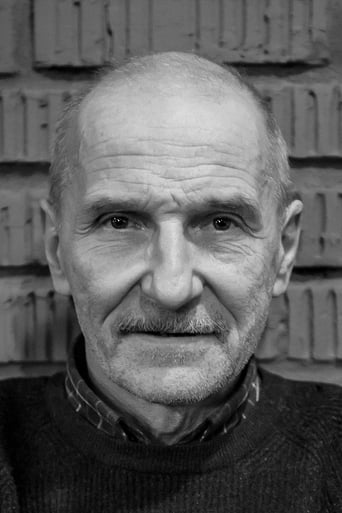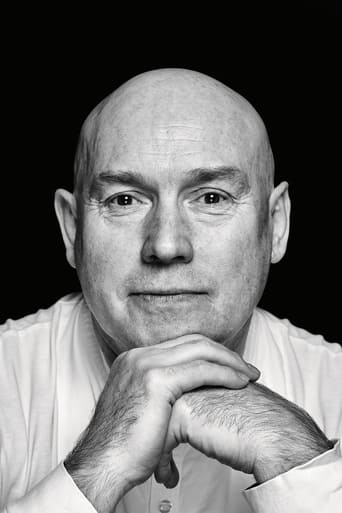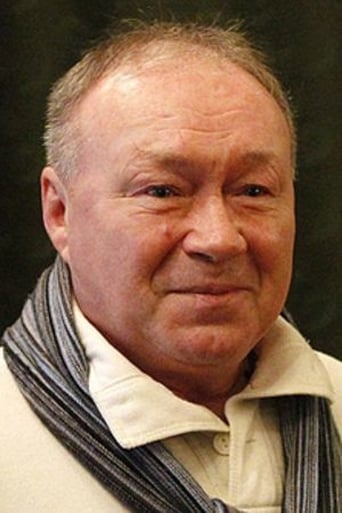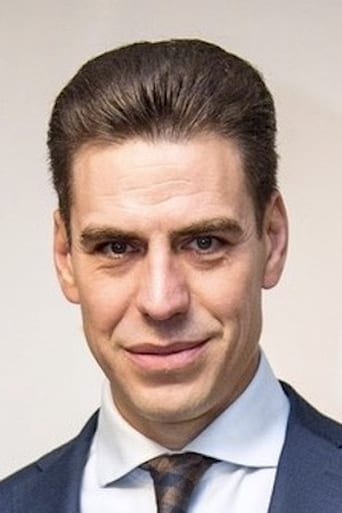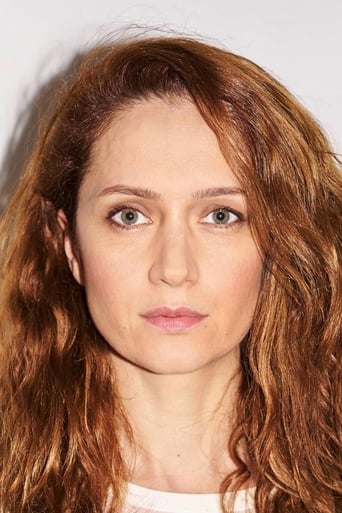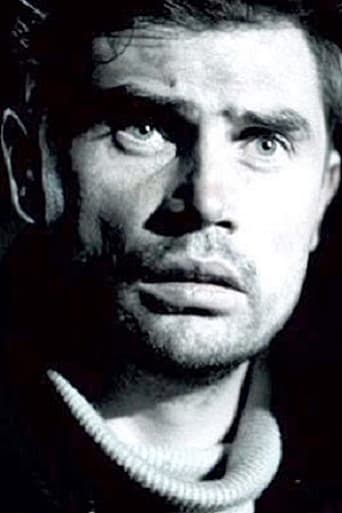ironhorse_iv
There have been a variety of Christian views on how to live life, over the years. At one end, prosperity and well-being are seen as a blessing from God as a gift for all people. However, at the other end of the spectrum, ascetic people believe that abstinence from worldly pleasures, and adopting a frugal life, is the only way, to understand God. They view materialism as evil. Then, there are those, 'unnatural asceticism" who rejects nearly everything, lives in isolation, and allows themselves, to live in consent pain, through mortification of the flesh, in order to be sanctification. This is the fictional interpretation of one of those type of ascetic. Directed by Pavel Lungin, the film tells the story of Father Anatoly (Pyotr Mamonov), a Russian Eastern Orthodox monk, whom has chosen to live a life of perpetual state of repentance on an isolation island on the White Sea, in order to combat his guilt & cowardly actions, during World War 2. Without spoiling the movie, too much, while, this movie was indeed spiritually. It was hardly moving. This cold, depressing movie is mostly standstill, with a snail-like pace. It really takes forever for anything to happen like the twist. Because of that, the film can really be, long & repetitive at times. Nevertheless, I still like, how the movie dealt the sequences where people come to see Anatoly for cures and guidance. It's unique to see, a movie, approach exorcism in a realistic tone. It makes everything look so ambiguous. Who knows, if his gifts of prophecy and healing were, really from God, madness or just an act. Maybe, he just, was cynical old hermit. After all, he does come across, as very egomaniacal with him, guilt-tripping people to access suffering, when they don't have to. He seems very disenchanted about other people and how they live their life. Certain scenes like him, undermining a woman right to abortion, & forcing another woman to face the pain of using her husband, were, really hard to watch. He really came across, as over-preachy and judgmental. So, unlike the Eastern Orthodox Church, which holds a non-juridical view of sin. In many ways, it seems, like he was, just using the system, in order, to make people, feel the same shame, he's going through. Because of that, I can't say, this movie is uplifting. Don't get me wrong, I know, that the movie centerpiece was supposed to show, how unpleased and mundane, most of Father Anatoly's life spent atoning was, but they could had play up, a little more on how much of a 'fool for god' or 'yurodivy', Anatoly is, for entertaining reasons. Why, because, there are a number of references to the yurodivy in 19th century Russian literatures, ranging from characters from playwright Alexander Pushkin's 1874's play 'Boris Godunov' to author Fyodor Dostoyevsky's 1868's novel 'The Idiots' that help the source material, greatly, by making the 'fool for Christ', character, stranger. I think, this approach, would keep, the movie more interesting, as we try to figure out, what Anatoly is doing, that other priests would be annoyed, by him!? After all, some of the major highlights of the film, is, the few scenes, with Anatoly's humorous interaction with his fellow priests, such as Father Job (Dmitri Dyuzhev) & Father Filaret (Viktor Sukhorukov), such as the blanket scene. So, why couldn't we have, more of that!? It would help the character, be, less stern, dry & somewhat boring. In spite of the negative tone, of the character, I do have to say, Pyotr Mamonov's acting was amazing, for somebody, who started out as a rock musician. He really did seem like a seasoned actor, despite only starring in a few roles, before taking, this. Nevertheless, much of the credit for his great acting, could be said, on how similar, the role was to Pyotr Mamonov's real-life. Like Anatoly, Pyotr also converted to Eastern Orthodoxy and lives now in an isolated village. In short, he was large extent, playing himself. Nevertheless, the movie is still thought-provoking, without him. The cinematography location visuals of Kem, were amazing on its own. Well-shot from cinematographer Andrei Zhegalov & his crew. The simple bareness of seeing, little to nothing on an icy white snow, make it, seem, like purgatory. You really got the sense of how remote, these islands, were. Added to that, was the astonishing use of spiritually-theology inspired music by composer, Vladimir Martynov. It was beautiful to listen to. Overall: The film provide a good portrayal of faith and monastic life in rural Russia during the communist era, both in acting and in visuals. While, it's not, the most entertaining movie, it seem, like the most real, besides documentaries. I highly recommended seeing even if you're not the most spiritual person, around.
Asxetos
Plot: 2 people on a soviet ship that carries coal are attacked by a Nazi fighter ship. The Nazi captain forces Anatoli, the less brave between the two men, to kill his captain and then leave him to die from the explosives they have placed there. Anatoli survives somehow and is saved by some Orthodox Monks. Some decades later Anatoli, the weirdest amongst the other monks, is pursued by strong guilt but also seems to have gained the ability to heal people that come in the monastery or predict the future.You'll love Ostrov if: You are a very faithful Christian or at least a very humble and spiritual person. Humility… in my view that's the lesson of the movie. Anatoli is tortured by his own sins, constantly in tears and full of inner pain, doesn't care about "the right procedures" and other earthly and useless stuff like his fellow monks, sees himself as the lowest of the low and spends most of his time praying to God and asking for forgiveness. The gifts of Anatoli aren't exaggerated… you won't see God speaking to him, or light sparks coming from his hand. Anatoli is a humble man, a great lesson in Monastism. Apart from that the movie looks wonderful. Ostrov combines great cinematography, with nice camera work and beautiful but bleak soviet landscapes that make you feel the isolation and the overall depression of the main character.You'll hate Ostrov if: You are not spiritual at all, or if you hate slow paced movies with almost no plot. I'm not a believer, (not anymore at least), but I still like the concept of humility that the Christian Orthodox faith is –supposed to be- based upon. However the way this movie portrays that, is quite wrong in my opinion. You'll see Anatoli carrying his coal in his wheelbarrow for 10 minutes, then a five minute pause for tearful prayers, then more coal, more prayers, more coal and so on. In all respect to religious people I am among these people whose opinion about prayers is "Doing nothing and still thing you're helping". OK, we get it! Anatoli is sorry for the murder of his friend, his guilt and repentance is genuine and so on and so forth but other than that what is the movie all about? Sorry but it takes more than constant, (although genuinely straight from the heart), prayers to make me like a movie about religious morals. And for those people that right now think stuff like, "Damn Atheist!!!", I disagree. I loved Jesus Of Nazareth when I was a Christian and I love it even to this day that I'm not anymore…FINAL VERDICT: Doesn't Do The Trick (3/10)[+] Humility in Monastism 101. Great cinematography with wonderful Russian landscapes.[-] More prayers than an actual plot. Slow paced and badly directed.Also Check: Jesus Of Nazareth (1977) – The Last Temptation Of Christ (1988) - The Passion Of The Christ (2004)P.S.: My purpose in all my IMDb Reviews is not to say "I like\don't like this movie" but to help you decide whether YOU will like it or not since everything is all about taste and expectations IMO...
Chad Shiira
There's an island in Father Anatoly's mind where no sins are pardonable and the sentence for such transgressions is thirty years-to-life. As it happens, there's a physical island, too; an island surrounded by a watery grave, and in this grave, Father Anatoly hears the ghost who has haunted him for decades in the ripples of the lapping water.He used to be a coward. It was the war. He was just a boy. First mate to a ship captain, Anatoli stoked the furnace with coal, staring at a hell forthcoming without realizing it. When a Nazi ship pulls up on the Russian isle, his mettle is tested by German savagery, a test he flunks, as the first mate pleads for mercy and betrays his captain. And ever since that fateful night, forevermore, the coward tries to atone for his lack of valor by adhering to a rigorous spiritual life of manual labor and prayer. From sunup to sundown, Anatoly pushes around a wheelbarrow full of coal he dislodges from the cold winter ground with his pickaxe. By all appearances, the omission of a personal, or even an intellectual life, suggests that Anatoly never deviates from this self-effacing routine."Ostrov" is a modernist film. Modernism itself is symbolized by the explosion that Anatoly survives, in which a new man emerges out of the blast, a new consciousness. Modernism, as you know, came to fruition during WWI, when the fractured psyche of the English people prompted a new form of literature to address the country's new reality. In "Ostrov", Anatoly wakes up on the beach with newfound mystical powers that allows him to be a "magician". But he's no charlatan like Albert Emanuel Vogler(Max Von Sydow) was in Ingmar Bergman's "Ansiktet". Father Anatoly is a popular fixture amongst the order of bishops as people come from miles away to seek out this uncompromising and gruff old man for guidance. If only Anatoly himself could guide his soul out of the thin air that permeates throughout this desolate island.God can pardon any sin, according to Father Filaret(Viktor Sukhorukov); god forgives, but Father Anatoly prays to a god that he customizes to his own specifications. During a communal praying session, Anatoly deliberately faces the wrong way because he believes that the bishops' god is a false one. He believes that penance from one's past transgressions can't be attained while the sinner is still in corporeal form. Anatoly's reverence for god is so profound, the renegade bishop doesn't readily assume that he's forgiven in god's eyes, even when Tikhon(the captain that Anatoly sold out) forgives the bishop for his cowardice. Death, not mere words, is the only way Anatoly can come to terms with his inner demons.

